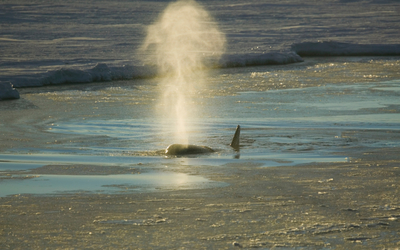Art Exhibit Shows How Britain Has Abused the Sea to This Day
Unless you live in a coastal area, it’s easy to forget that we Brits are surrounded by sea. Luckily, the Nottingham Contemporary/Tate St Ives exhibition, Aquatopia: the Imaginary of the Deep, is here to remind you of the beauty of water, how important it is to your environmental wellness.
The exhibit has been five years in the making and is filled with elaborate watery fantasies from various artists. When you think about it, it makes complete sense to celebrate the wonders of the deep. Your wellbeing depends on water; provides half of the air you breathe, carries 95% of your country’s global trade by volume and defines and outlines the country itself. However, you often ignore this vast expanse of wellness barring a few sunny weeks in August, at which point you rock up with your litter and fuel-pumping jet skis, take your fill, and leave it behind once more.
Our relationship with water has defined Britain as a country throughout history. You need only turn to the opening pages of Joseph Conrad’s Heart of Darkness to see how the waterways simultaneously floated us to greatness and shame, importing Britishness to every corner of the globe while allowing us to trade human beings for cane sugar. Conrad writes, ‘What greatness had not floated on the ebb of that river into the mystery of an unknown earth! . . . “And this also,” said Marlow suddenly, “has been one of the dark places of the earth.”’ We subjected the waters to our terrible involvement in the slave trade, which is the subject of Aquatopia’s most telling works, the Otolith Group’s film, Hydra Decapita. The group depicts imagines a utopian world which has been populated by the subaquatic descendents of Africans drowned during the infamous Middle Passage.
For centuries, no one had any idea how deep the ocean really was. In fact, it was thought to be a bottomless entity which, if you sailed far enough over the flat world, would take you to the void or into the mouth of a monster. According to medieval myth, the sea was thought to continue overhead. There is a story of people in East Anglia, who claimed to find an anchor entangled on a gravestone when they were leaving church one Sunday. The story goes that a strange being climbed down the rope from an unseen ship in the sky, and then evaporated under the unnatural pressure. This is the hold that the sea once had over us – and look how far we’ve come.
It wasn’t until the 80s that we began to realise it wasn’t OK to routinely dump nuclear waste in the north-east Atlantic. Because of our actions, alpha predators, such as orca and sperm whales, have become the most polluted animals on the planet, due to lovely ingredients like heavy metals, organochlorines and PCBs entering the marine food chain. Even though we now know better, you can’t help but wonder if we’ve really come all that far from burying our heads in myth, or using the sea for our own, selfish and immoral needs.
According to the Wildlife Trusts and other conservation groups, in the recent round of assessments for 127 marine conservation zones around Britain’s coasts, the government only selected 31 for consideration. This is largely due to the opposition given by recreational users. Clearly, we still think Britain dominates the see, and won’t easily give her up for the greater good. Sure, we abuse the waters for domination and pollution, or just forget the sea altogether, but that’s ok as long as – for a few weeks a year – there’s somewhere you can go get a tan.


Comments are closed.